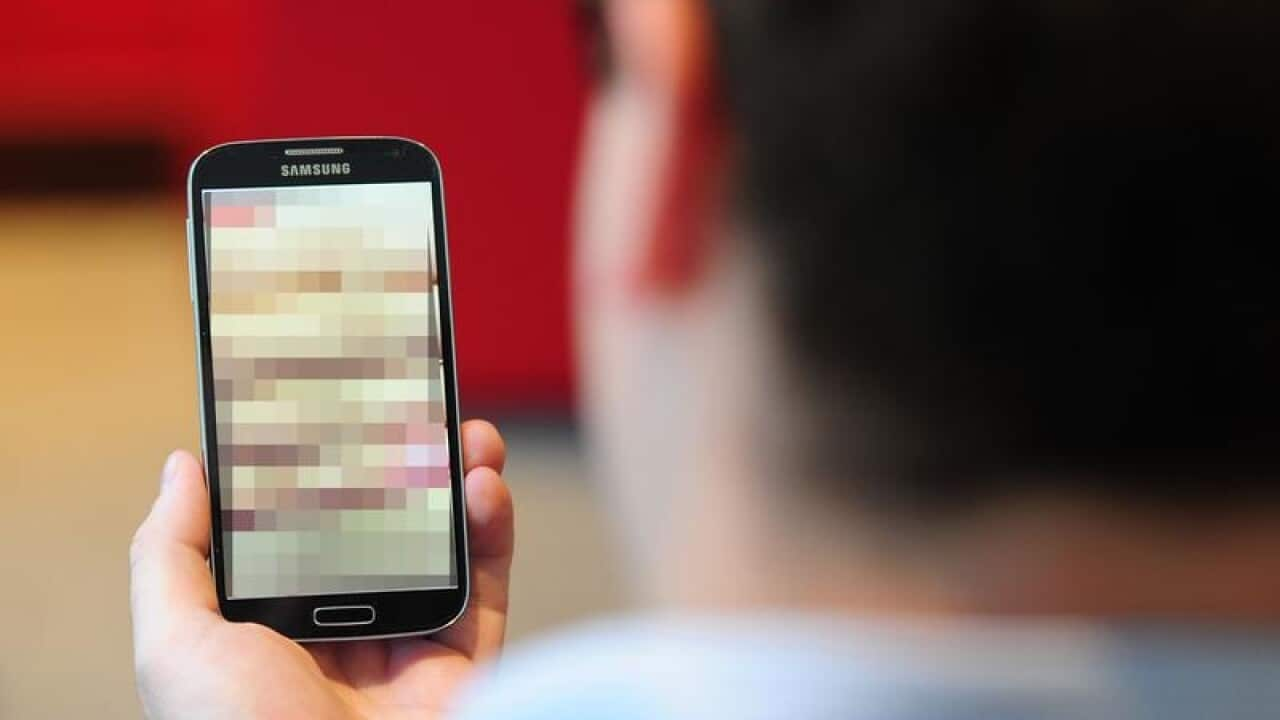New South Wales courts will have greater powers to order the destruction of images used in cases of "revenge porn", under legislation to be introduced in state parliament.
The changes to the Criminal Procedure Act to be proposed on Wednesday will acknowledge the distress and damage such acts have on the lives of victims, Attorney-General Mark Speakman said.
"It is vital victims know if they report intimate image abuse that they will be appropriately supported in court, while also helping them regain privacy and dignity," he added.
Under the reforms, victims can give evidence remotely and in a closed court, access a support person, have their identity protected from publication and avoid cross-examination by an unrepresented accused person.
They also allow a court to order an offender to remove, retract, delete or destroy an intimate image if found guilty of threatening to distribute such material without consent.
"What happens to intimate images can be a source of ongoing fear and trauma for many victims and our bill seeks to address that anxiety," Mr Speakman said.
Research by the e-Safety Commissioner indicates 11 per cent of Australian adults have experienced revenge porn - the act of circulating sexually explicit images or videos of individuals, usually online, without their consent.
According to the NSW Bureau of Crime Statistics and Research, 420 charges were laid for intimate image offences between July 2019 and June this year.
The proposed revenge porn legislation before New South Wales parliament is being considered along with a bill to criminalise coercive control.
This week, Are Media launched a national campaign to criminalise coercive control in all Australian states and territories by mid-2021.
One of the campaign's spokespeople, Nithya Reddy, described coercive control as one of the first warning signs that her sister was not safe with her boyfriend.
Preethi Reddy was murdered by her ex-partner in a hotel room and stuffed into a suitcase in March 2019. Her sister says it is past time for action and law reform on the issue, which would allow victims of coercive control, including financial abuse and isolation, to report to police.
Her sister says it is past time for action and law reform on the issue, which would allow victims of coercive control, including financial abuse and isolation, to report to police.

Source: Facebook
'We are in a far better position than we were when my sister was murdered 18 months ago. But look what it has taken, it has taken her and Hannah Clarke.
"Look what it has taken. It shouldn't be this way, but it is. We are maybe months away from changing the law but we need more than words, we need to act," Ms Reddy said.
The six-month campaign has the backing of groups including Small Steps for Hannah, a foundation founded by the Clarke family after their daughter Hannah's murder.
Hannah Clarke was murdered with her free children by her estranged husband in Brisbane in February 2020 - a shocking crime that reignited conversations around Australia's issue with intimate abuse and family violence. A survey by the Australian Institute of Criminology of 15,000 women that found 4.6 per cent, or 690 individuals, had experienced domestic violence in the three months to May 2020.
A survey by the Australian Institute of Criminology of 15,000 women that found 4.6 per cent, or 690 individuals, had experienced domestic violence in the three months to May 2020.

Hannah Clarke and her three children's remains are being laid to rest in a single white coffin, adorned with pink flowers. Source: AAP
It also reported a 210 per cent increase in online abuse and increased reports of financial abuse and people experiencing abuse for the first time.
If you or someone you know is impacted by sexual assault, family or domestic violence, call 1800RESPECT on 1800 737 732 or visit . In an emergency, call 000.
Readers seeking support can contact Lifeline crisis support on 13 11 14, Suicide Call Back Service on 1300 659 467 and Kids Helpline on 1800 55 1800 (for young people aged 5 to 25). More information is available at and .











